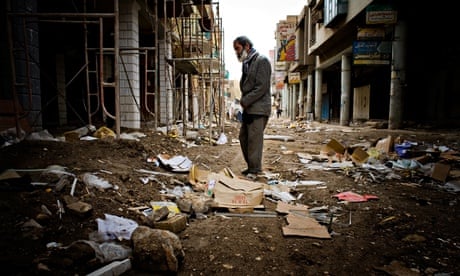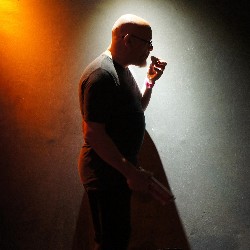A Memorial for Al Mutanabbi Street

Mutanabbi Street is the historic centre of Baghdad book selling, a street overflowing with book stores and outdoor book stalls. A gathering place for academics, progressive thinkers, poets and philosophers, writers, artists, and home to countless family run, small press printers, binding houses and publishers. It is one of the oldest and best known streets in the Iraqi capital.
Named after the 10th-century classical Iraqi poet Al-Mutanabbi, the street has been referred to as the heart and soul of the Baghdad literacy and intellectual community. Largely politically tolerated for it's at times, not-so-subtle, potentially subversive intellectual liberalism, and often regarded as a seismograph of the state of Iraqi culture over the course of the centuries. The history of the street goes back to the time of the Abbasids. It was the site of the first book traders' market in the metropolis that was Baghdad, with its almost inexhaustible supply of books, Al Mutanabbi Street served as a contemporary witness to the political and cultural changes taking place in Mesopotamia.
On March 5th 2007, a car bomb exploded on Mutanabbi Street killing 30 people, injuring 120, destroying lives, families and livelihoods. In response to the bombing, in 2008, American poet and book store owner Beau Beausoleil began a project dedicated to commemorating the culture and history of the street and the population that inhabited it for generations before the attack. 'Al Mutanabbi Street Starts Here' began as a coalition of artists, writers, academics and institutions from all over the planet. The project has since grown into a global community, memorial and phenomenon encompassing a myriad of events, readings, publications and exhibitions and spawning a series of off-shoots and continuation projects.
Such was the obscenity of this attack on a principal historical site of embryonic human literary endeavour that the repercussions are still rippling through creative communities almost ten years later. This video of the owner of the Shabandar Cafe, Mohammad Al-Khashali, talks with such intensity and clarity of his experience of the bombing that it's difficult not to feel an empathy. However, his message is clear, as the title of the film suggests, Forgive, But Do Not Forget.
----------------------------------------------------
Kitab*Katib
No one wants to be the [
An inflammatory instant of forgetting
In a bloom of fire and blood-letting
A memory comes in a flash
And blows across the desert; ash.
Is Heav'n the thought, or body of the thinker?
Philosopher, poet, soldier,
You may well fight to separate
Ancient Tigris and Euphrates.
Al Mutanabbi remember,
A gentle kiss upon a page
And a river of printers ink
Carries abroad what writers think.
Copyright David G Kirby, 2008
Edition of ten.
On December 18, 2008, Iraqi Prime Minister Nouri al-Maliki officially reopened Al Mutanabbi Street after a year and a half of cleanup and repair.
-------------------------------------------------------
More on Mutanabbi Street, the projects of Beau Beausoleil and others here -
- https://middleeastrevised.com/2014/10/09/al-mutanabbi-street-and-the-healing-power-of-poetry/
- http://www.amsshdc2016.org/
- http://www.worldliteraturetoday.org/2012/may/day-lingers-us-still-al-mutanabbi-street-starts-here-persis-m-karim
- http://www.theguardian.com/books/2014/jan/21/literary-project-baghdad-bookselling-district
- http://www.economist.com/blogs/prospero/2012/12/al-mutanabbi-street-starts-here
- http://narrative.ly/resurrecting-the-book-market-of-baghdad/
Follow me on Instagram, Twitter, ArtFinder and Big Cartel



No comments:
Post a Comment